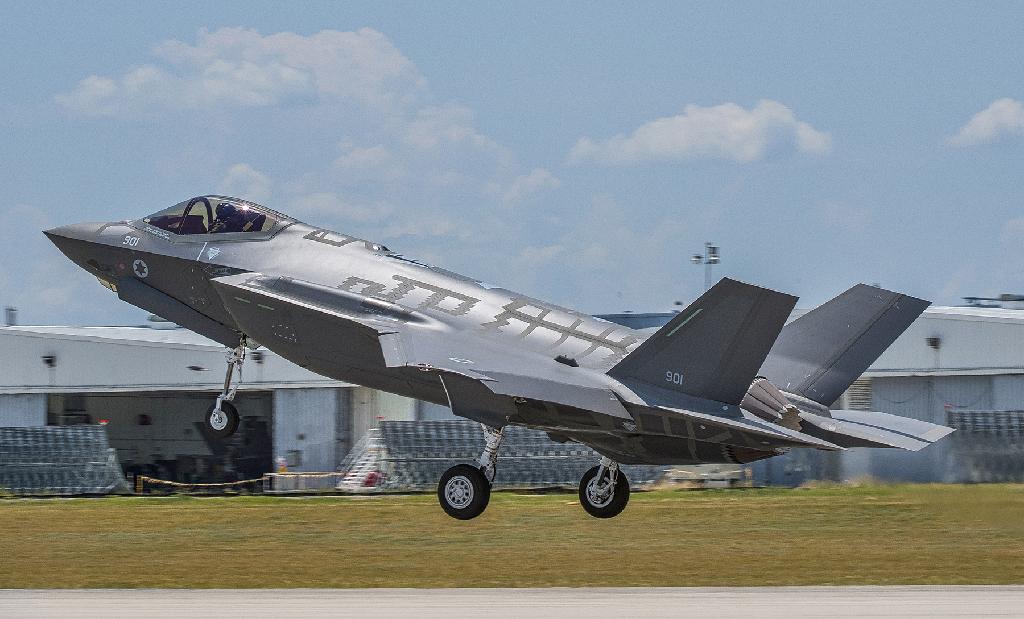Getting your Trinity Audio player ready...
U.S. President Donald Trump said Wednesday that the country is considering selling advanced F-35 warplanes to the United Arab Emirates, a day after Prime Minister Benjamin Netanyahu vehemently denied that the nascent agreement between Jerusalem and Abu Dhabi included such a provision.
Ynet on Tuesday revealed the existence of the secret clause in the recently reached agreement between Israel and the UAE to establish diplomatic ties, which allows the U.S. to provide the Emiratis with the F-35s and advanced drones.
Trump told reporters at a White House news conference on Wednesday that the Emiratis had expressed interest in buying “quite a few” of the stealth fighter jets.
He said such a sale was “under review” given the new dynamic between Israel and the UAE since the two nations agreed to normalize relations last week.
Perhaps just as important, Trump said, is that the UAE can afford to buy the planes.
5 View gallery
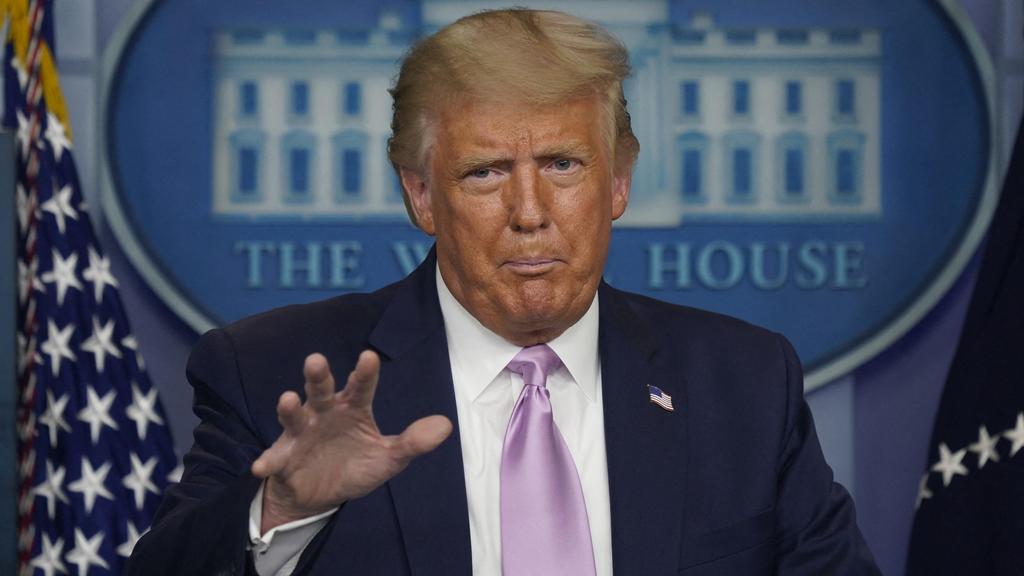

U.S. President Donald Trump speaking to reporters at the White House. August 19, 2020
(Photo: MCT)
“They have the money and they would like to order quite a few F-35s,” Trump said. “It’s the greatest fighter jet in the world, as you know, by stealth, totally stealth.”
“They’d like to buy F-35s, we’ll see what happens,” Trump added. “It’s under review, but they made a great advance in peace in the Middle East.”
Trump said that at some point he expected Saudi Arabia to join the Israel-UAE agreement announced last week.
"I do," Trump replied when asked at a White House news conference if he believed Riyadh would also sign an agreement with Jerusalem.
5 View gallery
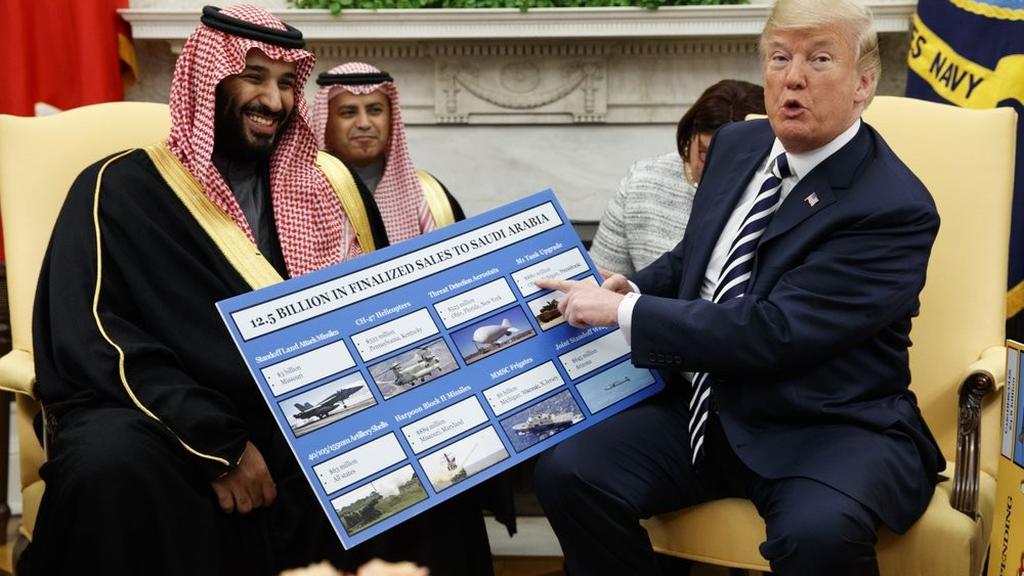

U.S. President Donald Trump shows a chart highlighting arms sales to Saudi Arabia during an Oval Office meeting with its Crown Prince Mohammed bin Salman
(Photo: AP)
In security-obsessed Israel, confirmation that military-related strings are attached to the UAE deal could temper some of the excitement that has widely surrounded it thus far.
Netanyahu took to Twitter on Tuesday to deny the existence of the secret clause - branding the Ynet report "completely fake news" - even as his office said that he had repeatedly expressed to American officials Israel's concerns over such an arms sale.
"The peace agreement with the UAE does not include any clause of this kind, and the U.S. has made clear to Israel that it will always ensure that Israel has the qualitative advantage," the Prime Minister's Office said in a statement.
5 View gallery
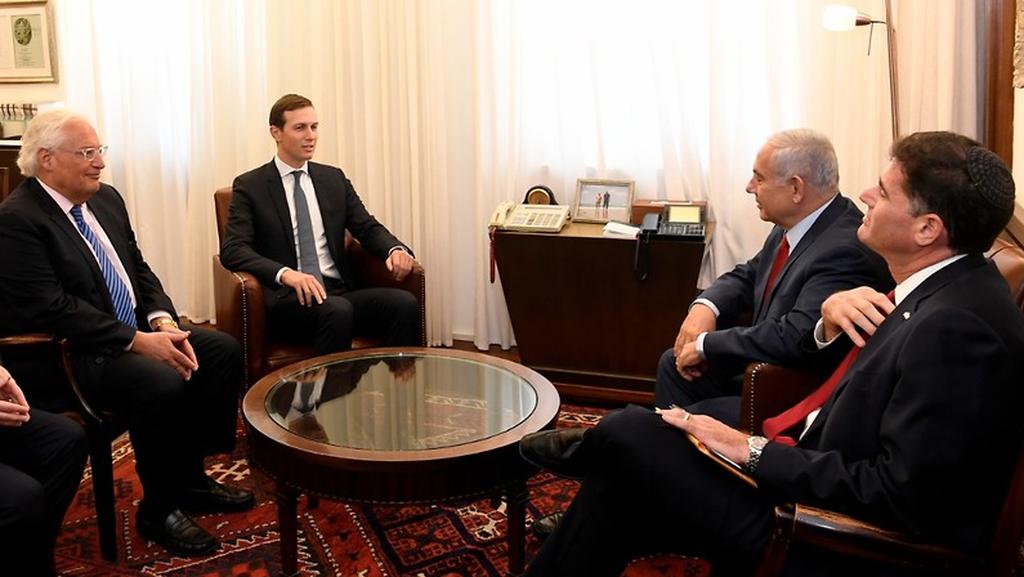

Prime Minister Benjamin Netanyahu meeting with U.S. Ambassador David Friedman, White House aide Jared Kushner and Israeli Ambassador Ron Dermer in Jerusalem last year
(Photo: U.S. Embassy)
But the statement also said that, "In the prime minister's conversation with U.S. Ambassador [to Israel David] Friedman on July 7, the prime minister explicitly expressed Israel's opposition to the sale of F-35 aircraft and other advanced weapons to any country in the Middle East, including as part of any peace agreements," it said.
Maintaining regional military supremacy has been a hallmark of Israeli policy for decades, and Jerusalem has used close ties with Washington to ensure that certain sophisticated weapons are not sold to neighboring countries.
The UAE has long been reported to be interested in acquiring U.S.-made F-35 stealth fighter jets and attack drones like those of the Israeli Air Force.
The Prime Minister's Office also said Tuesday that Defense Minister Benny Gantz, who serves as the alternative prime minister and is Netanyahu’s chief coalition partner, had been updated on his opposition to the F-35 sales in July.
But Gantz said later the same day that he had only been informed of the UAE agreement once it had been signed last week and decried any move to end Israel's military advantage in the region.
5 View gallery
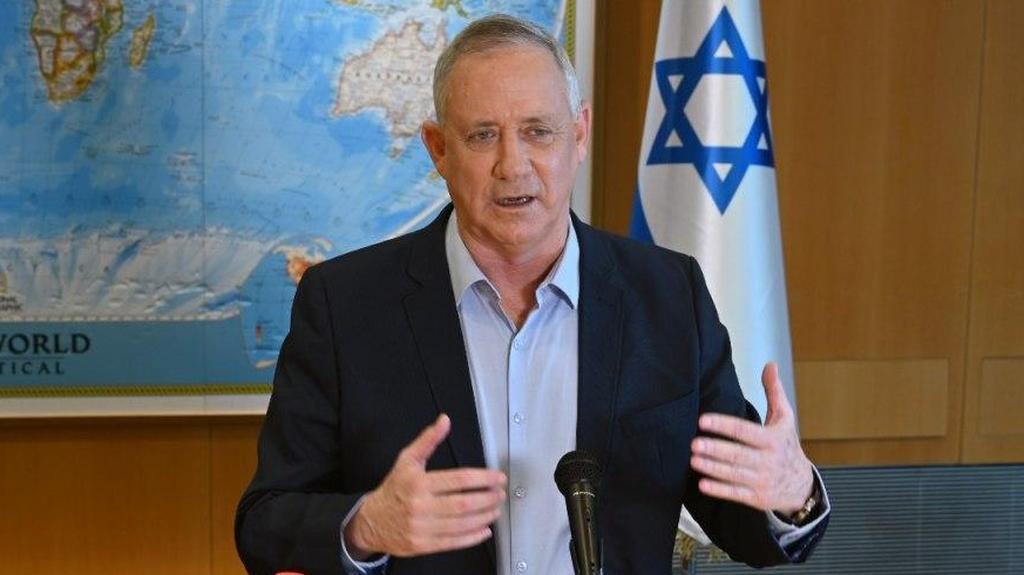

Defense Minister Benny Gantz speaking from his office in Tel Aviv on Tuesday
(Photo: Defense Ministry)
"Israel's resilience depends on its air superiority in the Middle East," he said, and vowed to maintain Israel’s qualitative military edge at any price.
As part of his various corruption scandals, Netanyahu has also been accused by critics of bypassing Israel’s defense establishment in regards to a German sale of advanced submarines to Egypt.


